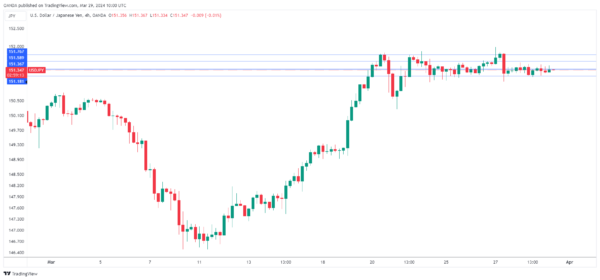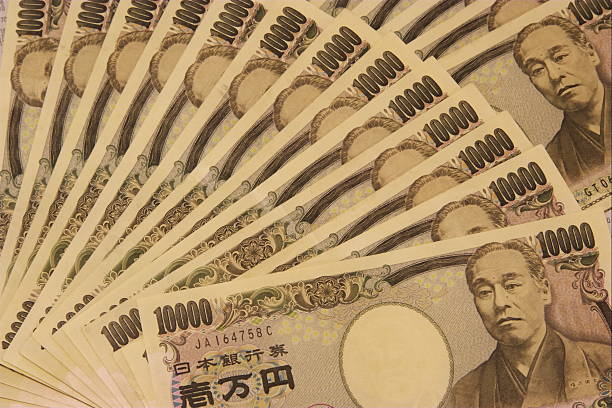The Japanese yen continues to have a quiet week and is unchanged in the European session at 151.17.
Tokyo Core CPI inches lower to 2.4%
Tokyo Core CPI, which excludes fresh food, eased to 2.4% y/y in March, a drop lower than the 2.5% gain in February and matching expectations. This inflation indicator is closely watched as it is considered a leading indicator of nationwide inflation. The Tokyo “core core” CPI index, which excludes fresh food and energy, eased to 2.9%, down from 3.1% in February.
Cost-push inflation and services inflation are weakening, which presents a problem for the Bank of Japan, which wants to see services inflation replace cost-push inflation in order to ensure that inflation remains sustainable. The BoJ pressed the rate-hike trigger last week, a dramatic move that was made easier as national wage negotiations have resulted in a significant pay hike for workers of major companies. However, if services inflation doesn’t show signs of rising, BoJ policy makers are likely to shy away from additional rate hikes.
Despite the market buzz over the BoJ lifting rates out of negative territory for the first time in eight years, the BoJ hasn’t really exited its accommodative policy. Last week, the BoJ said it would buy roughly the same amount of government bonds as before, and the summary of opinions of the March meeting indicated that members want to proceed cautiously and slowly toward policy normalization.
The BoJ rate hike hasn’t provided a boost for the ailing yen, which has been trading around 151.50 for most of the week. This has raised concerns that Japan’s Ministry of Finance could intervene in the currency markets in order to prop up the yen. So far, the MoF has sufficed with verbal intervention, but that could change if the yen continues to lose ground.
USD/JPY Technical
- 151.58 and 151.76 are the next resistance lines
- USD/JPY has pushed below support at 151.36 and is testing support at 151.18










